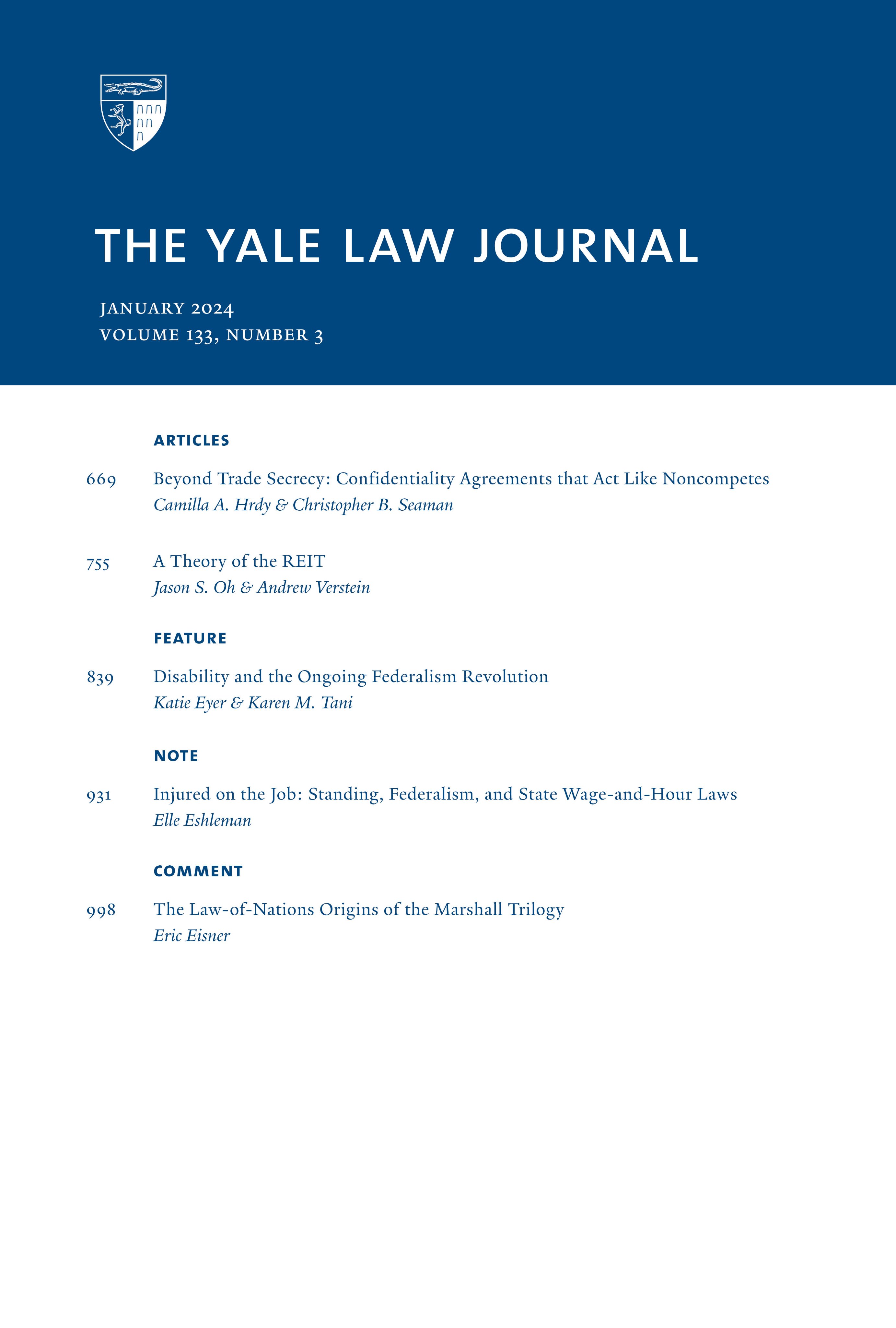民事承诺上诉中的安德斯摘要
IF 5.2
1区 社会学
Q1 LAW
引用次数: 0
摘要
指定律师不得在审判后抛弃他们的委托人。法院规定,如果律师希望退出“无关紧要”的案件,他或她首先必须提交一份摘要,提及记录中可能支持上诉的任何内容。然后,在允许撤回之前,上诉法院审查案情摘要和下文的诉讼程序,以确定律师的评估是否恰当。自1967年对安德斯案作出裁决以来,最高法院尚未确定这一程序是否也适用于民事承诺的上诉。然而,最近州法院的几项裁决拒绝了这种可能性。本说明从理论和政策两方面批评这些决定。首先,对相关判例法的回顾表明,安德斯应该被视为来自第十四修正案,而不是来自第六修正案,这为在刑事和民事承诺上诉中要求安德斯提供了令人信服的宪法基础。此外,安德斯通过缓解民事承诺律师经常表现出的角色困境,在推进“治疗法学”规范方面可能具有独特的效用。作者。耶鲁大学法学院2008年法学博士;南加州大学,学士学位2005。本文非常感谢Jesse Brush的周到建议和精心编辑。本文章由计算机程序翻译,如有差异,请以英文原文为准。
The Anders Brief in Appeals from Civil Commitment
appointed attorneys from abandoning their clients after trial. The Court provided that if counsel wishes to withdraw from a "frivolous" case, he or she first must file a brief referring to anything in the record that might support an appeal. Then, before permitting withdrawal, the appellate court examines the brief and the proceedings below to determine whether counsel's assessment was proper. Since deciding Anders in 1967, the Supreme Court has not determined whether this procedure also applies to appeals from civil commitment. Several recent state court decisions, however, have rejected this possibility. This Note criticizes these decisions on both doctrinal and policy grounds. First, a review of relevant case law suggests thatAnders should be viewed as derived from the Fourteenth Amendment rather than from the Sixth Amendment, furnishing a compelling constitutional basis for requiring Anders in both criminal and civil-commitment appeals. Moreover, Anders may have unique utility in furthering the norms of "therapeutic jurisprudence" by alleviating the role dilemma often manifested by civil-commitment attorneys. AUTHOR. Yale Law School, J.D. 2008; University of Southern California, B.S. 2005. This Note owes a great debt to Jesse Brush for his thoughtful suggestions and careful editing.
求助全文
通过发布文献求助,成功后即可免费获取论文全文。
去求助
来源期刊

Yale Law Journal
LAW-
CiteScore
4.50
自引率
6.20%
发文量
0
期刊介绍:
The Yale Law Journal Online is the online companion to The Yale Law Journal. It replaces The Pocket Part, which was the first such companion to be published by a leading law review. YLJ Online will continue The Pocket Part"s mission of augmenting the scholarship printed in The Yale Law Journal by providing original Essays, legal commentaries, responses to articles printed in the Journal, podcast and iTunes University recordings of various pieces, and other works by both established and emerging academics and practitioners.
 求助内容:
求助内容: 应助结果提醒方式:
应助结果提醒方式:


